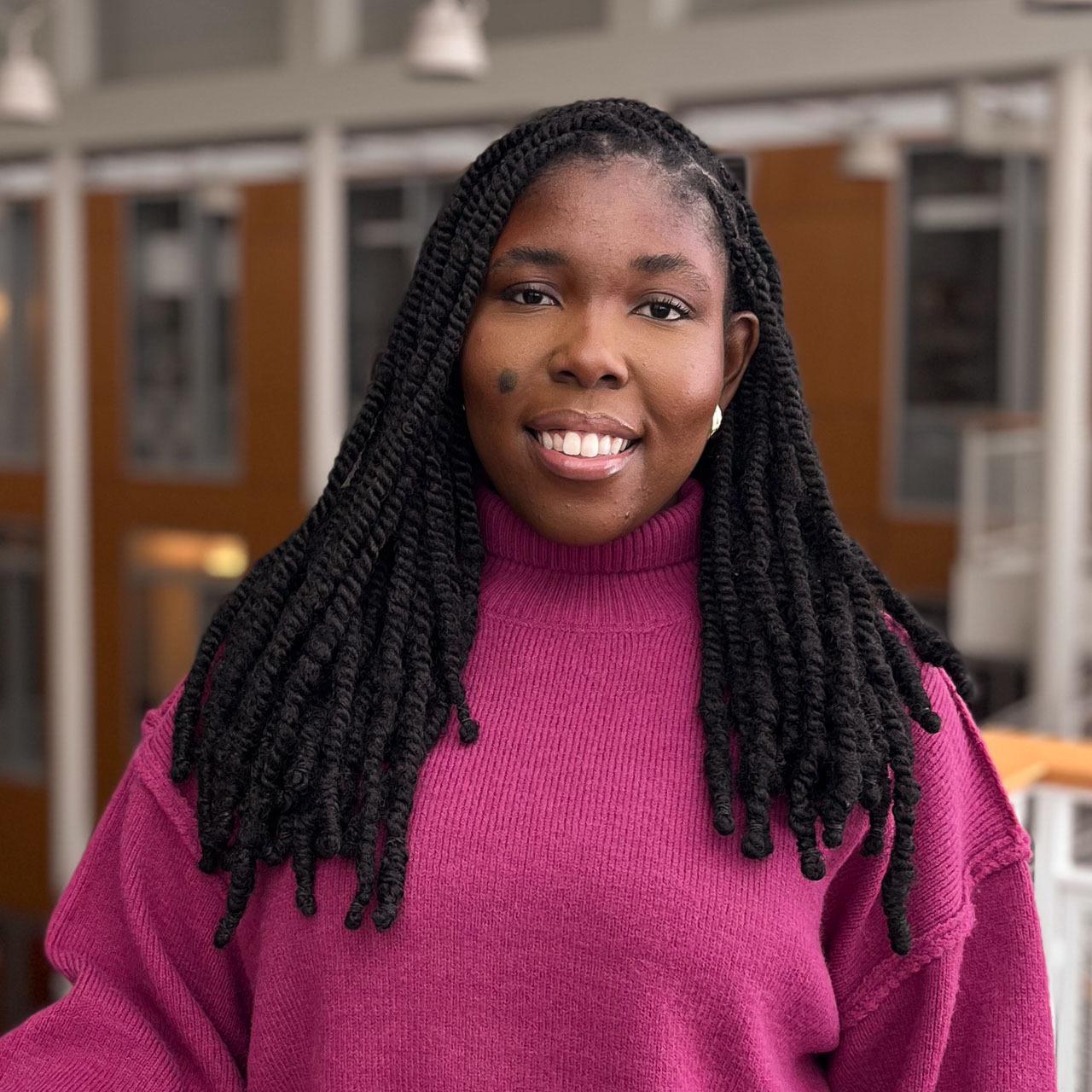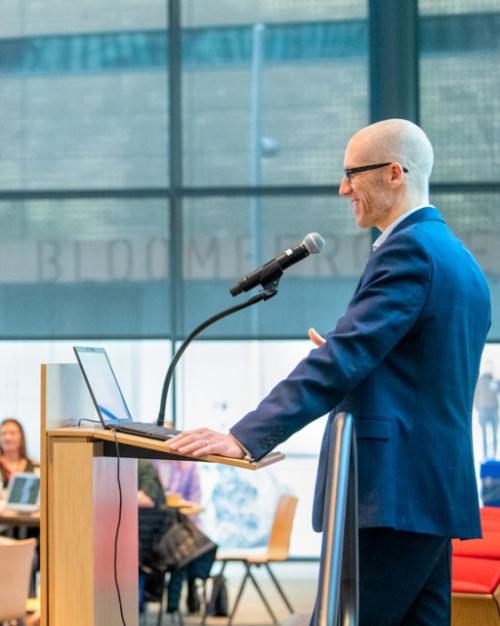An innovative Cornell-led survey paints a comprehensive picture of what Americans were thinking on Election Day in 2022 – and advances the science of surveys.
Key findings include that nearly half of white Americans recognize that the deck remains stacked against Black Americans. One out of four Americans think parents should decide whether their kids buckle up. And a majority of Americans believe in restoring voting rights to people previously convicted of a felony.
The researchers revealed the results from the Cornell-led 2022 Collaborative Midterm Survey Jan. 20 at an event at Cornell Tech.
“The results demonstrate that even at a time of extreme political polarization, on some issues the opinions of most Americans are aligned,” said the survey’s principal investigator, Peter K. Enns, professor of government in the College of Arts and Sciences (A&S) and public policy in the Cornell Jeb E. Brooks School of Public Policy.
Funded by the National Science Foundation, the innovative survey was larger and more comprehensive than a traditional public opinion poll. With a sample size of 19,000 Americans – 20 times larger than most national polls – it produced a range of fascinating insights. They include:
- Majorities in all states favor requiring background checks for gun purchases at gun shows or other private sales;
- Democrats rate the U.S. Congress and supporters of Black Lives Matter more favorably than the average American does. Republicans rate billionaires and the people who breached the U.S. Capitol on Jan. 6, 2021, more favorably than the average American does; and
- The vast majority of Republicans (80%) surveyed accepted the results of the November 2022 midterm elections, even as some leaders of their party and prominent candidates disputed the outcome.
“The results of this effort will inform political leaders and the survey industry as they prepare for the 2024 elections and look for the best methods to ensure all voices are represented in the polls,” said Enns, who is also the Robert S. Harrison Director of the Cornell Center for Social Sciences.
Co-principal investigators were Jonathon P. Schuldt, associate professor in the Department of Communication in the College of Agriculture and Life Sciences and executive director of the Roper Center for Public Opinion Research; and Colleen L. Barry, inaugural dean of the Cornell Brooks School.
“Developing new approaches to accurately measuring voter attitudes and preferences in both the midterm and general election cycles has never been more important,” Barry said, noting that the last large, national scale midterm survey was in 2002.
Experts from the polling and survey industry, academia and the media offered their perspectives on the results at the Cornell Tech event.
Accurate polling increasingly depends on gathering data in multiple ways and that escalates the cost and complexity. “We’re at a crossroads where the methods that have worked the best continue to fare well perhaps but are more expensive than ever and we need to try new things,” said Nate Cohn, chief political analyst for the New York Times.
The Collaborative Midterm Survey offers a roadmap toward that future, said Jennifer Agiesta, CNN Director of Polling and Election Analytics. “This is the kind of work our industry needs so that we can figure out how to move forward in a world where the ground is shifting,” she said.
The data and methods were also made public Jan. 20, part of a wide-ranging effort by the survey directors to emphasize transparency, experiment with new methodologies, and improve the framework for understanding democracy in the face of fast changing technologies and declining response rates.
“The multimethod survey offered an unprecedented opportunity to understand the preferences, attitudes, and behaviors of groups that are increasingly difficult to analyze in traditional surveys,” Schuldt said.
The Cornell investigators selected three organizations to collaborate with them on the survey; each used two sampling methodologies to ask a core set of identical questions during the same time period. The organizations are:
- Gradient Metrics is a team of data scientists, programmers and researchers driven by statistics that brings together traditional market research and data science to build models. It partnered with Survey 160, another survey organization, to poll more than 3,000 respondents, primarily through text messaging;
- The Iowa Social Science Research Center is an interdisciplinary research center at the University of Iowa. It polled nearly 7,000 respondents through telephone calls and webs surveys; and
- SSRS is a full-service survey and market research team that polled more than 6,000 respondents including a representative sample of residents in California, Florida and Wisconsin because of their demographic diversity and electoral importance.
Jim Hanchett is assistant dean for communications for the Cornell Jeb E. Brooks School of Public Policy.






